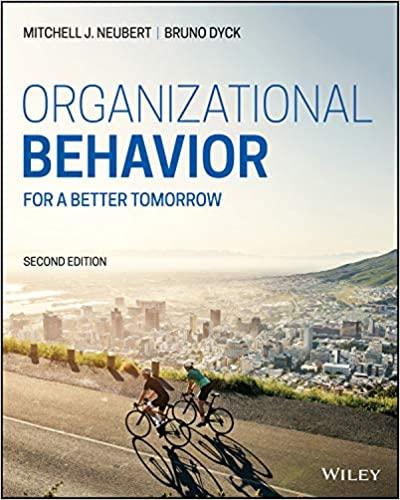Leymah Gbowee had a relatively pleasant childhood growing up in Liberia, Africa and was looking forward to
Question:
Leymah Gbowee had a relatively pleasant childhood growing up in Liberia, Africa and was looking forward to her first year in a university. Then, a civil war started and threw her country into chaos and bloodshed. After a period of homelessness, Gbowee took up the struggle for peace by working for several peacebuilding organizations. In 2001, Gbowee and several other women founded WIPNET (Women in Peace Network). An early success was a gathering at an outdoor fish market, where women wore white T-shirts (symbolizing peace) with the WIPNET logo and handed out emotion-provoking flyers that said: “We are tired! We are tired of our children being killed! We are tired of being raped! Women, wake up—you have a voice in the peace process!” She began organizing peaceful nonviolent protests and initiatives. One involved a group (illegally) occupying a large soccer field that Liberia’s President Charles Taylor passed by twice daily, finally provoking him to meet with them and agree to peace talks with representatives from the rebel groups. When those peace talks showed little progress, Gbowee and a delegation of women determined to remain seated in the hallways outside, arms interlocked—until a peace agreement was reached. An agreement was reached in a few weeks. In another example, two hundred women were deployed in teams of 20 to 10 counties to encourage women to register.
To facilitate this, the women volunteered to babysit, undertake domestic chores, and assist with selling at the market. In a week, the total number of registered female voters rose to 51 percent. The women then mobilized support for Ellen Johnson Sirleaf, who eventually was elected as President of the Republic of Liberia. In describing her actions, Gbowee said, “I believe strongly that our efforts in Liberia were successful because of the interfaith, interethnic, and diverse political composition of our group. We came from different backgrounds, and we just came to that place where we made a commitment that we’re going to move beyond the things that divide us and embrace the things that brought us together.” When asked about the spiritual resources that helped sustain her efforts, she mentioned prayer: “There were times in the journey when I would get tired, and I thought maybe we needed to change the leadership. Those women would come, kneel, and would pray and lay hands on me and ask God to give me strength.” In 2011, Gbowee, President Sirleaf, and Tawakkol Karman, a collaborator in many peace initiatives was awarded the Nobel Peace Prize. Over the next decade, Gbowee continued to promote the empowerment of women in politics as well as take on the fight against gender-based violence and abuse. Her work as a voice for peace and equality within Liberia, Africa, and across the world has earned her a reputation as the most influential leader of her generation.
1. How did Gbowee’s life experiences shape her leadership?
2. Which aspects of her leadership do you find most inspiring?
3. What did you learn from Gbowee’s example that might apply to your leadership challenges?
Step by Step Answer:

Organizational Behavior For A Better Tomorrow
ISBN: 9781119702856
2nd Edition
Authors: Bruno Dyck, Mitchell J. Neubert





